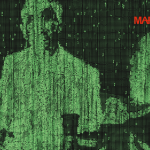By Raihan Hadi
I know this idiot who lost a small chunk of money last week trying his luck with NFTs for the very first time.
Long story short, some of his friends told him he could sell his artistic talent as NFTs in the form of artwork and start earning right away, and he jumped at the potential opportunity.
He forgot that he’s a noob, tried transferring some crypto from an existing platform to one preferred by the NFT platform, and once his withdrawal was approved he received his first slap – the new platform doesn’t accept the particular mode he used to transfer his funds, and now they’re in a limbo, and unless the new platform initiates a transfer back to the original, there’s nothing else that can be done.

The idiot in the story is yours truly, the certified noob trying to access life in the Metaverse.
Yes I’ve had a hiccup at the outset of my journey, but I’m sure I’m not alone, there are other idiots out there.
Thing is, and genuine curiosity this is coming straight from idiot extraordinaire himself – is this whole digital economy and coagulation of virtual realities really a safe space yet?
I understand that the people who are already playing in it and earning more than enough to feed Somalia, and it is the creators of the game who are the biggest advocates of the space and the benefits it supposedly brings (like duh?), but is it for the mainstream peeps? Or do we need to start like my idiot friend, lose some money to limbo, and find our own way?
Another question I’ve been basing some research on since the incident is – are the digital assets protected for real?


From a layman’s point of view, technical details of NFTs aside, putting artwork, for instance, on the blockchain is similar to listing them in a catalog for an auction. It sorta kinda adds a level of certainty about the work in consideration. And it goes without saying that copies of a digital image or video are perfect replicas of each other, it is impossible to distinguish them.
But what is a buyer of an NFT really getting?
Bear with me while I try to explain it to myself out loud for a bit – due to technical shortcomings, blockchain records cannot really store actual images, hence even while tech “gurus” are trying to influence us noobs to get into the scene through the popular NFT platforms, the platforms use a shortcut to publish artwork in the form of a mere link or, if they’re a bit fancier, then a mathematical compression of it.
So a buyer is actually buying an artwork that lies in some website owned by god knows who or what, basically making it impossible for said buyer to know whether it’s an original or not.



Mind you! Just because an NFT artwork isn’t a Da Vinci or a Picasso or a Van Gogh, doesn’t mean that it’s value is negligible. “Everydays: The First 5,000 Days,” a piece of NFT artwork by Mike Winkelmann, better known as Beeple, joined the rankings of the likes of Picasso, Rothko, van Gogh and Monet as one of the most expensive art pieces sold at an auction in 2021 – for a whopper $69.3 million! Nowhere near the Mona Lisa (US$ 870 million at the moment), I know, but not bad either eh?
As the mainstream interest in digital collectible items have surged, celebrities, sports teams, musicians, video game makers and even Marvel comics have joined the NFT crusade. If they’re not waiting, then what’s stopping idiots like me?

One word – Trust.
If in the last 18 years, someone as popular, innovative (not exactly my words), and as creepy as Zuckie boy hasn’t been able to establish a speck of trust with people through one of the largest social platforms in the universe, to a point where even their pivoting to the metaverse involved them stealing their new name from another company, is there really a possibility for people to completely trust these platforms ever?
I mean yes you will find an idiot like me among every group of ten, but in general, especially the younger generations of today understand what’s what and who’s pulling a BS on them and who isn’t.
Coming back to the instance where Le Idiot lost his money whilst doing a simple transfer from one platform to another, and now patiently awaits for the latter platform to kindly return his money to its original location for over ten days now, how much can anyone actually trust a system that’s not so transparent after all.

What about the rest of the metaverse?
Listen, the topic has just become the hottest one, still as fresh as the eggs I bought this morning.
Based on what history tells us, anything new in the digital or virtual world needs to go through its trial and error phase, in addition to beta testing and all that fancy stuff.
And only when a few years have gone by and the hype has cooled down a bit, we eventually see the true use of the product, and it won’t be any different in this case either.
Moreover, most governments around the world haven’t given their thumbs up to cryptocurrencies yet simply because their officials haven’t figured out ways to steal it yet, so mass adoption and use will take time.
Yes, you can begin by trying things out with VR versions of games like the good old Minecraft and No Man’s Sky, or even a more immersive experience such as the Lexus Virtual Drive on Android or iOS.
The key is to always get a hang of things before jumping into the ocean completely.
And in case you are a fellow idiot, do what I did, a few punches never really hurt anyone.
This piece was the cover story on Issue 319 of MARKETING WEEKENDER.

APPIES Asia Pacific 2022 is happening in Malaysia!
Campaign entries must have run between Jan 2020 to May 2022
(open to campaigns ran from any Asia Pacific market during this period)
Visit appies.asia for details, registration and submissions NOW!
MARKETING Magazine is not responsible for the content of external sites.









